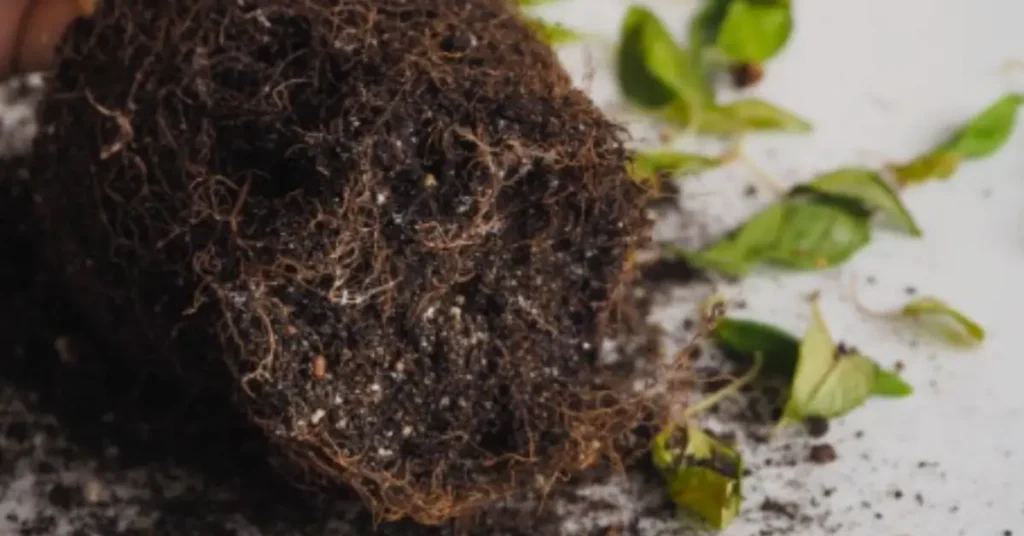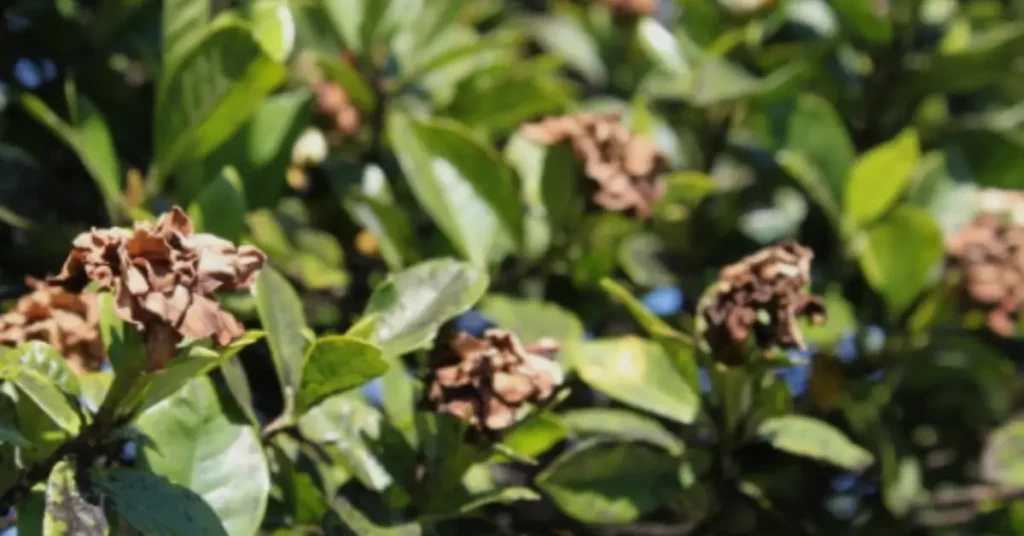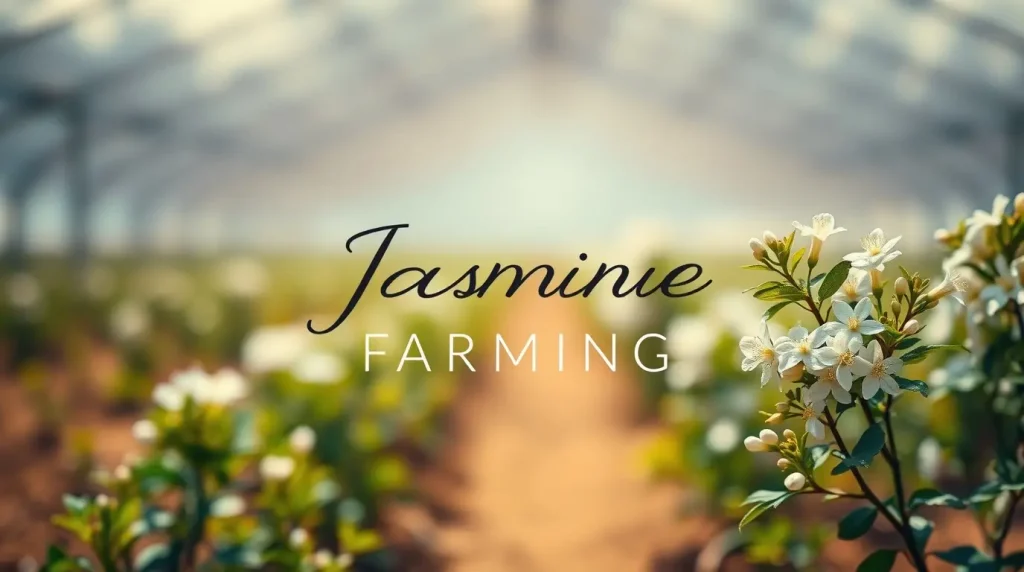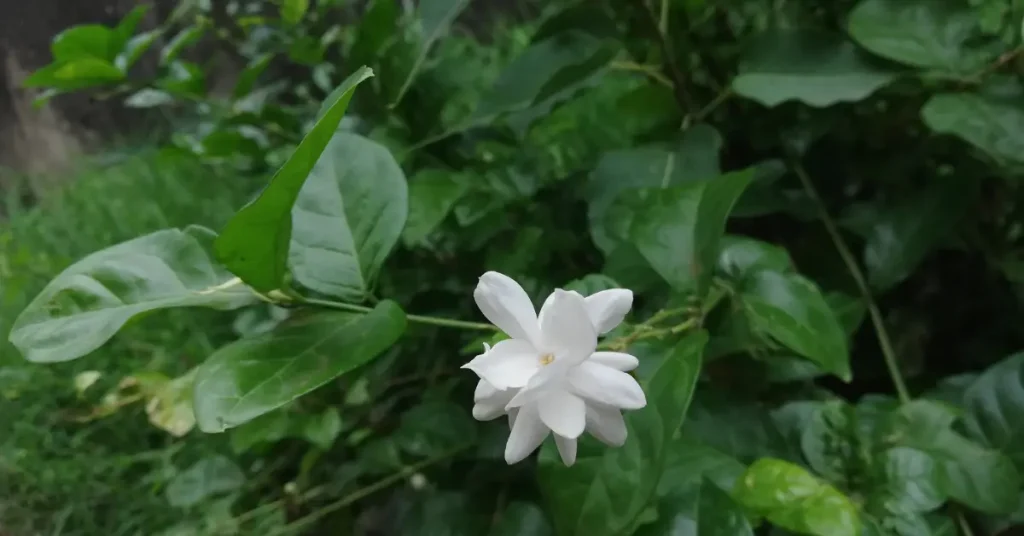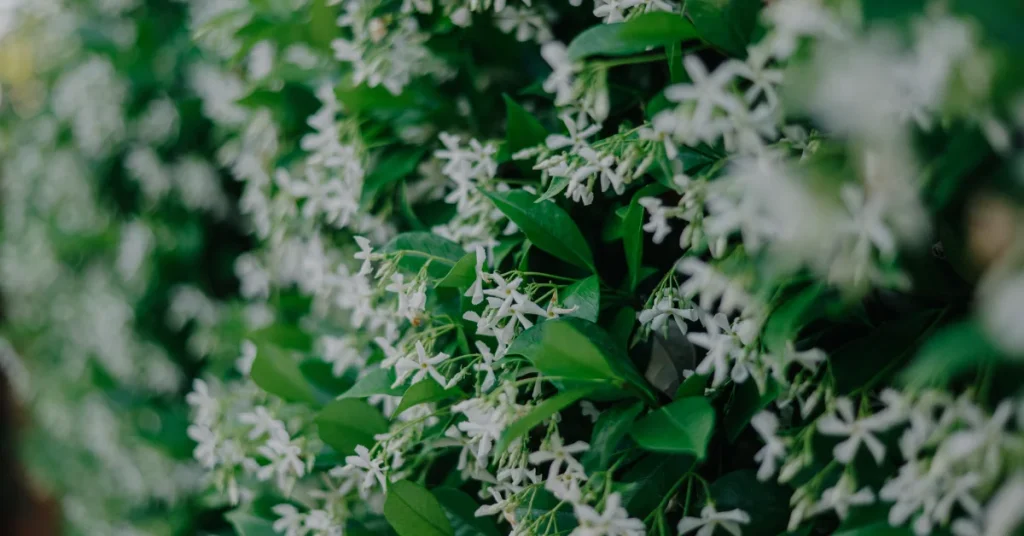Is Star Jasmine Poisonous? All Answers
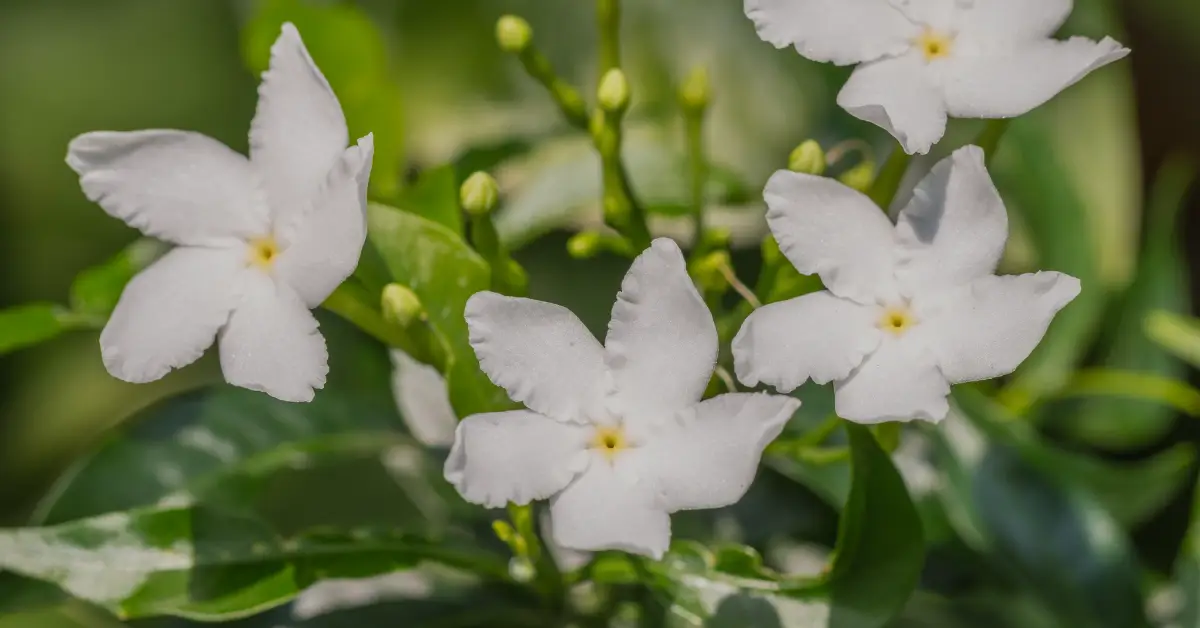
Star jasmine, scientifically known as Trachelospermum Asiaticum or Trachelospermum jasminoides, is a fragrant and evergreen flowering plant. It is not a true jasmine, but it is commonly referred to as “star jasmine” due to its similar fragrance to true jasmine flowers.
It is well-suited for gardens, landscapes, and containers. If you are planning to plant this aromatic flower in your garden, then it is crucial for you to know “is star jasmine poisonous”?
In this article we will discuss the poisonous of jasmine for humans, for pets, possible allergies in humans due to star jasmine, treating poisonous among pets and safety measures for children and pets as well.
Is Star Jasmine Poisonous for Humans?
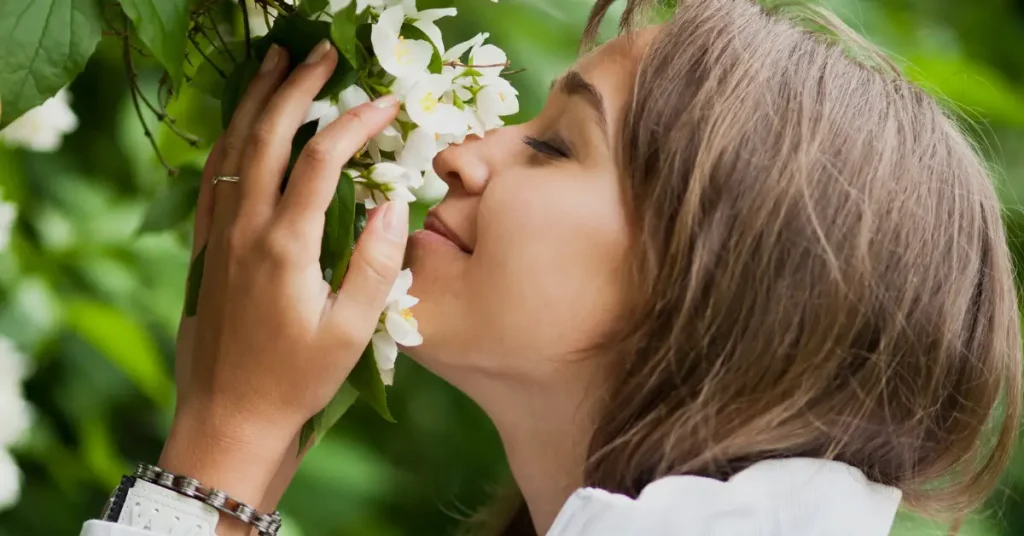
Star Jasmine is known for its graceful white flowers and its captivating fragrance has made it a beloved flower among gardeners. But is it safe for humans???
Yes, it is absolutely safe for humans. You can enjoy its enchanting fragrance without any hesitation. You can relax your senses with its aroma in your evening sittings. It must be a positive addition for your home and garden.
Is Star Jasmine Poisonous to Eat?
Star Jasmine is used for herbal treatment from years in China. It’s leaves, flowers and stem is used for making antibacterial tonic after dilution. But the ingestion of any part of this plant in its raw form may cause toxicity for humans. If ingested and got stomach upset, seek immediate medical advice.
Is Star Jasmine Poisonous for Babies?
Star jasmine poses a particular risk for children, as its fragrance may entice them to taste it. All the parts of the plant are toxic for children. So handle it with care!
Is star Jasmine Poisonous To Touch?
Star jasmine plants have the potential to trigger skin allergies in both humans and pets. The plant releases a milky white sticky sap from its stem, which may cause allergy or irritation. The allergy may lead to swelling, redness, and rashes in some individuals.
This will only occur in persons who are sensitive or allergic from star jasmine or other plants.
In the case of the occurrence of allergic symptoms, a simple wash of the area will work immediately. If symptoms are prolonged, consult with a dermatologist for treatment.
Is star jasmine Poisonous for Dogs?
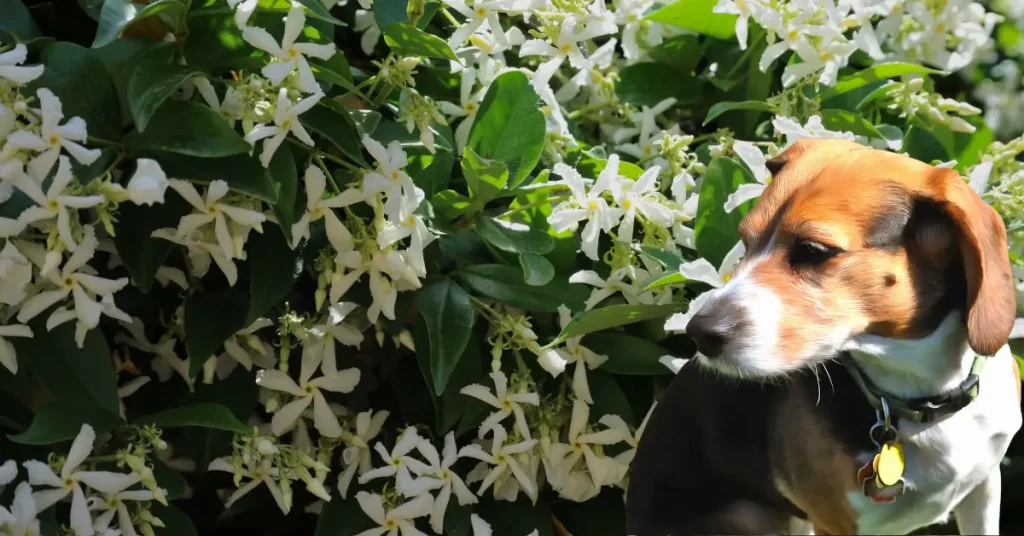
Well the presence of star jasmine is not toxic for your furry friend. Young dogs tend to explore their surroundings by chewing on various objects, particularly during the teething phase. When their teeth are in the process of changing, they may impulsively grab and chew on anything within reach.
If a puppy decides to chew on a plant like star jasmine, It may cause digestion problems. It can pose serious risks if eaten considerable amount in raw form. On appearing symtoms like stomach upset, change in poop color, and allergy etc, its time to visit a vet.
Is Star Jasmine Poisonous for Cats?
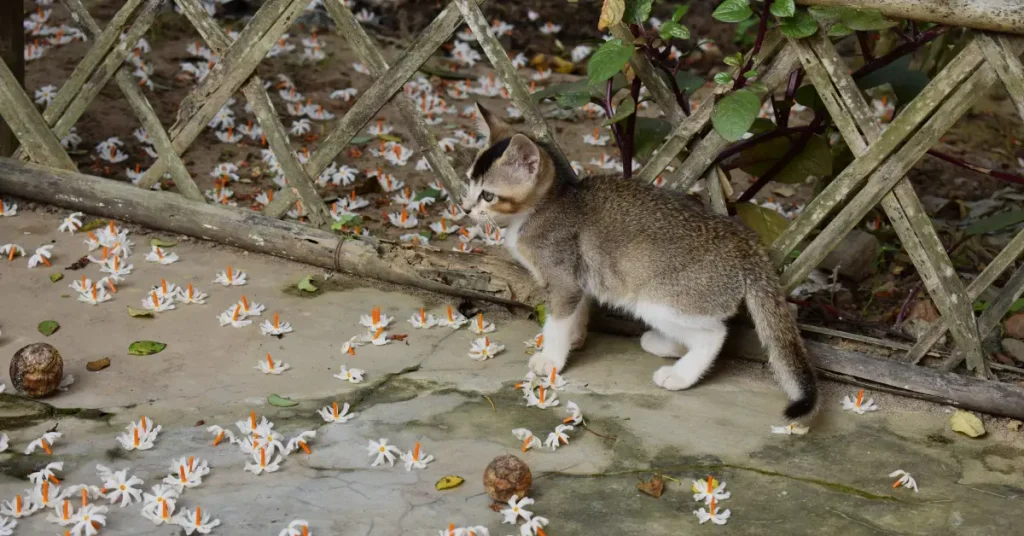
The presence of star Jasmine is not harmful for your kitten. Eating in raw form of any plant material poses a threat to your pet as it is toxic to cats. Consumption of any portion of the plant can lead to symptoms such as vomiting, diarrhea, drooling, and skin irritation. It may also cause mouth irritation among them.
Is Star Jasmine Poisonous for Cattle?
Star jasmine comes in different colors such as, white, pink and light yellow. White and pink star jasmine are considered safe for cattle. Light yellow is harmful as it has different set of alkaloids and it may cause digestion problem among your cattle.
Treating Star Jasmine Poisoning Among Pets
Immediate manifestation of symptoms is not guaranteed every time if your pet has eaten jasmine in raw form but if you have a strong suspicion that your pet has ingested Jasmine, it’s crucial to seek veterinary assistance. If there appears symptoms,delaying can lead to a potentially life-threatening situation for your pet friend.
The veterinarian will conduct a diagnosis and administer the most effective treatment for your pet. The treatment is dependent on the consumption of the plant portion. Mostly your pet gets well soon if treatment is given earliest.
Safety Measures for Pets and Children
Ensuring the safety of pets and children around star jasmine involves taking specific precautions due to the plant’s potential toxicity. Here are some safety measures:
1. Educate all the members
Inform all family members about the potential dangers associated with Star Jasmine.
Educate children about the importance not ingesting any part of the plant.
2. Be conscious about Placement and Accessibility
Plant star jasmine in areas that are less accessible to pets and children.Install protective barriers or fence to restrict access to the plant.
3. Supervision
Always supervise pets and children when they are spending their quality time. Be cautious, especially when the plant is in full bloom, as the fragrance may attract curiosity.
4. Training Pets
Train pets to avoid chewing on plants and discourage such behavior.Provide alternative safe toys and activities to divert their attention.
5. Prompt Cleanup
Regularly remove fallen leaves, flowers, or any plant debris from the surroundings to prevent accidental ingestion.
7. Safe Play Areas
Designate specific play areas for children away from potentially toxic plants.Ensure that these areas are well-supervised and free from hazardous plants.
9. Use of Gloves
If working with star jasmine or other potentially irritating plants, use gloves to protect the skin.Wash hands thoroughly after gardening.
10. Emergency Preparedness
Have the contact information for poison control centers and emergency medical services readily available.Learn the signs of poisoning and seek immediate medical attention if a child or pet shows symptoms of ingestion.
By implementing these safety measures, you can minimize the risk of accidental exposure to star jasmine for both pets and children, promoting a safe and enjoyable environment in your home and garden.
Final Words
In conclusion, star jasmine (Trachelospermum jasminoides) is considered toxic to both humans and pets if eaten in raw form. Various parts of the plant, including the leaves, stems, roots, and flowers, contain substances that can be harmful if ingested. The milky sap it secretes can also cause skin irritation in some individuals.
It’s essential to exercise caution, especially in households with curious pets and children.
FAQs
Q: Is star jasmine a true jasmine?
Ans: No, star jasmine (Trachelospermum jasminoides) is not a true jasmine. True jasmine plants belong to the olive family (Oleaceae) and the genus Jasminum. Star jasmine, on the other hand, belongs to the family Apocynaceae and the genus Trachelospermum.
Q: Are there any pet friendly flowers?
- Marigold
- Snapdragon
- Calendula
- Roses
- Petunias
- Daisies

I am a Food Technologist. Content writer and inspire my readers to understand the composition, production, and processing of different types of food.

